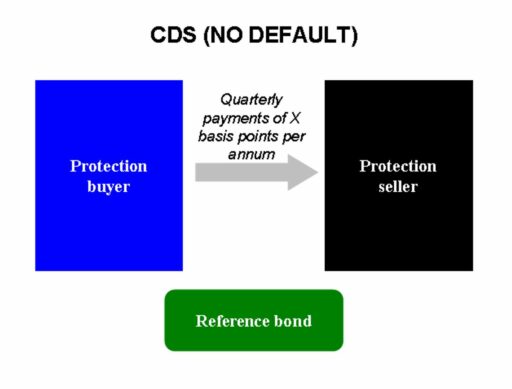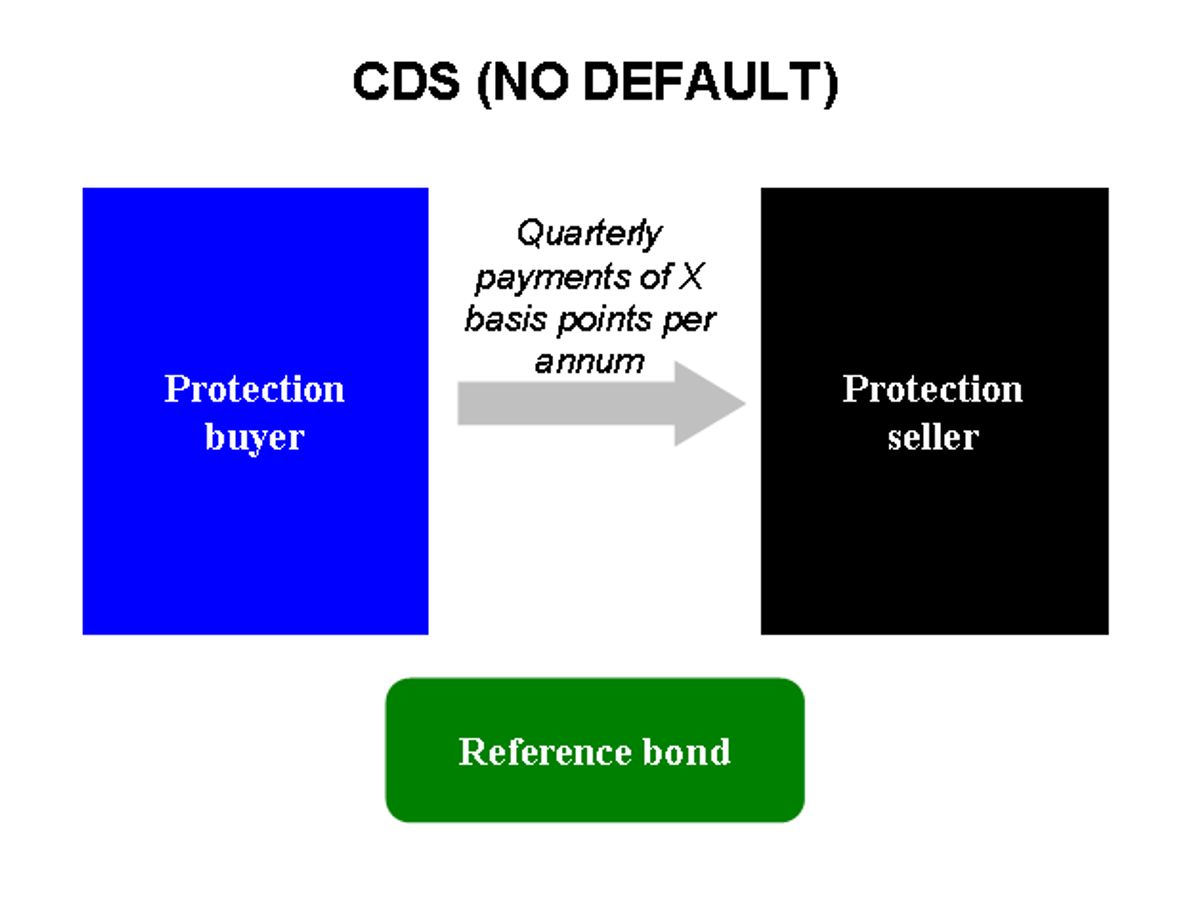Embarking on the journey of plastic surgery can be as much about financial preparation as it is about the physical and emotional aspects. Understanding the nuances of financing such procedures without a traditional credit check can help you navigate this path with greater confidence and clarity. This article delves into various financing options available, the real costs beyond the sticker price, credit considerations, alternative strategies, and the application process for financing your transformation.
Key Takeaways
- Plastic surgery financing options range from 0% APR credit cards to clinic financing plans, each with its own set of benefits and pitfalls.
- Interest rates, long-term financial implications, and additional fees such as those for currency exchange must be considered when evaluating the true cost of plastic surgery.
- Financing cosmetic procedures can impact your credit score, and it’s crucial to manage credit card usage and loan repayments responsibly.
- Alternative financing strategies include saving up, understanding insurance limitations, and exploring loans and Healthcare Financing Accounts (HCFSA).
- The application process for cosmetic surgery financing requires careful consideration of eligibility, comparison between credit cards and loans, and an understanding of credit requirements and approval processes.
Understanding Plastic Surgery Financing Options


Comparing Costs: Plastic Surgery vs. Major Purchases
When considering plastic surgery, it’s crucial to understand how its costs compare to other significant expenditures. Plastic surgery is an investment in your appearance and well-being, similar to buying a car or renovating your home. However, unlike these major purchases, the price of cosmetic procedures can vary widely based on individual conditions and needs.
- Cost Comparison:
- Car: $20,000 – $40,000
- Home Renovation: $19,000 – $75,000
- Plastic Surgery: $3,000 – $15,000
The above table provides a rough comparison of average costs for common major purchases versus plastic surgery. It’s evident that while plastic surgery can be less expensive than a high-end car or a full home renovation, it still represents a significant financial commitment.
Financing options for plastic surgery can make it more accessible, allowing you to spread the cost over time. However, it’s essential to consider the long-term financial implications, such as interest rates and the impact on your credit score, before making a decision.
The Allure of 0% APR Credit Card Offers
The prospect of financing plastic surgery without immediate interest charges is a significant draw for many. 0% APR credit card offers present an attractive option, allowing patients to manage the costs of their procedures over time without the added burden of interest, at least for an introductory period. However, it’s crucial to understand the terms of these offers to avoid unexpected costs once the promotional period ends.
- Introductory Period: Typically ranges from 6 to 18 months.
- Post-Promotional APR: Can be significantly higher than standard rates.
- Minimum Payments: Required during the 0% APR period to maintain the offer.
While these credit card offers can be a powerful tool for managing surgery expenses, they require careful planning and strict adherence to payment schedules to remain beneficial.
It’s also important to note that the allure of deferred interest can lead to overspending. Patients must ensure that they can realistically afford the eventual full cost of their surgery, including any potential interest accrued after the promotional period. Failure to pay off the balance can result in high-interest rates that may negate the initial benefits of the offer.
Financial Discipline: A Must for Cosmetic Procedure Financing
When considering the financing of cosmetic procedures, financial discipline is paramount. It’s not just about securing the funds; it’s about managing them wisely to avoid long-term debt traps. Here are some key points to keep in mind:
-
Budgeting: Before taking on any financing, create a detailed budget. This should include your regular expenses, the potential monthly payments for the procedure, and a buffer for unforeseen costs.
-
Emergency Fund: Ensure you have an emergency fund in place. Cosmetic surgery should not compromise your financial safety net.
-
Credit Utilization: Be mindful of your credit utilization ratio. High balances can affect your credit score, which could impact future financing needs.
Remember, the goal is to enhance your appearance without damaging your financial health. Consider all the costs involved and plan accordingly to maintain a balance between your aesthetic desires and fiscal responsibilities.
By adhering to these principles, you can navigate the complex world of cosmetic surgery financing with confidence and control. The journey towards your new body requires not just a physical transformation but a disciplined financial approach as well.
The Real Cost of Plastic Surgery: Financing Beyond the Price Tag


Interest Rates and Long-Term Financial Implications
When considering financing options for plastic surgery, it’s crucial to understand the long-term financial implications of interest rates. These rates can significantly affect the total cost of your surgery over time. For instance, a loan with a lower interest rate may seem appealing, but the comparison rate—which includes both interest and fees—might reveal a different story.
Here’s a quick overview of typical financing terms:
| Loan Amounts | Average Term | Establishment Fee | Monthly Fee | Interest Rate (P/A) | Comparison Rate |
|---|---|---|---|---|---|
| $2,050 – $5,000 | 7 – 19 Months | $437 – $771 | $10 – $14 | 23.31% – 29.90% | 51.26% – 65.88% |
| $5,050 – $10,000 | 14 – 24 Months | $546 – $795 | $9 – $14 | 21.90% – 25.90% | 28.71% – 33.80% |
It’s essential to scrutinize the details of any financing plan. A lower monthly payment might extend the term of your loan, leading to more interest paid over time. Always calculate the total repayment amount to understand the true cost of your loan.
Remember, the allure of immediate cosmetic enhancement should not overshadow the importance of financial health. Consider all financing options carefully, including personal loans, credit cards, or payment plans from your clinic, to ensure they align with your long-term financial goals.
Clinic Financing Plans: What to Look Out For
When considering clinic financing plans, it’s crucial to understand all the terms and conditions before committing. Many clinics offer payment plans that break down the total cost into monthly payments, making it seem more manageable. However, patients must be aware of the potential for high-interest rates if the balance is not paid off within the promotional period.
- Deposits and customizable payment plans can help make procedures more affordable.
- Some clinics provide zero-interest options, but only if the balance is paid within a certain timeframe.
- Always inquire about payment plans or discounts for upfront payments during your consultation.
Remember, the allure of manageable monthly payments can be tempting, but the real cost may include interest and fees that add up over time.
It’s also important to consider the implications of revision and touch-up surgeries, as well as how they are covered by insurance. Financing options are available for those who find the cost daunting, but it’s essential to weigh the long-term costs and ensure you’re not faint of wallet when the final bill comes due.
Currency Exchange and Transaction Fees in International Clinics
When considering plastic surgery abroad, patients must be aware of the additional costs associated with currency exchange and transaction fees. These fees can significantly affect the overall cost of the procedure. It’s important to factor in these expenses when budgeting for surgery in a foreign country.
- Pro-Tip: Always check with your chosen clinic about their currency exchange services. Although convenient, these services may come with less-than-ideal rates.
For those opting to pay with credit cards, be mindful of foreign transaction fees. Major credit cards are widely accepted, but these fees can quickly accumulate, impacting your financial planning process. Consider alternatives like MoneyGram money orders or PayPal to potentially reduce these costs.
Remember, the goal is to achieve your desired aesthetic without incurring unnecessary financial strain. Plan carefully to ensure that currency exchange and transaction fees do not become a hidden burden on your budget.
Credit Considerations for Cosmetic Procedures


The Impact of Financing on Your Credit Score
When considering financing options for cosmetic surgery, it’s crucial to understand how it can affect your credit score. Financing cosmetic procedures can have a significant impact on your credit history, especially if you’re not adhering to good credit practices. Here are some tips to help maintain or improve your credit score:
- Pay your bills on time to avoid negative marks on your credit report.
- Avoid opening new credit cards unnecessarily, as this can lower your average account age.
- Be wary of actions that can lead to bankruptcy or maxing out your credit limit, as these can cause a significant drop in your score.
Understanding the causes of a credit score drop is essential for maintaining financial health. It’s not just about getting the financing you need; it’s about ensuring you can manage it responsibly over the long term.
Financing options like medical credit cards often come with promotional interest-free periods, which can be a smart choice if managed correctly. However, remember that any financing is subject to credit approval and requires discipline to avoid spiraling into debt.
Credit Card Usage and Limits: A Balancing Act
Using credit cards for financing plastic surgery requires a careful balancing act between accessing available credit and managing your debt levels. It’s crucial to understand your credit limit and plan your repayment strategy to avoid high-interest rates and potential credit score damage.
- Credit Utilization: Keep your credit utilization ratio low to avoid negatively impacting your credit score.
- Repayment Timing: Align your repayment plan with the card’s promotional period to take advantage of lower interest rates.
- Budget Management: Ensure that monthly payments fit within your budget to prevent financial strain.
When considering credit card financing, remember that exceeding your credit limit or failing to pay on time can lead to penalties and a decrease in your credit score. It’s essential to monitor your credit card statements and stay on top of payments.
Lastly, be aware that some medical credit cards offer interest-free periods, but failing to pay off the balance before the promotion ends can result in high-interest charges. Always read the terms and conditions carefully to understand all the financial implications of your credit card use.
Improving Credit Through Responsible Repayment
Responsible repayment of plastic surgery financing can be a strategic way to improve your credit score. Making timely payments and keeping credit utilization low are key factors that credit bureaus consider when calculating your credit score. By managing your cosmetic surgery loan or credit card payments effectively, you can demonstrate financial reliability and potentially boost your credit rating over time.
It’s important to remember that while financing can enable you to achieve your aesthetic goals, it also requires a commitment to disciplined budgeting and timely repayments.
Here are some tips for managing your plastic surgery financing responsibly:
- Always pay more than the minimum payment to reduce the principal faster and save on interest.
- Set up automatic payments to ensure you never miss a due date.
- Keep track of your credit score regularly to monitor your financial progress.
- Avoid taking on new debt while you’re paying off your cosmetic surgery financing.
- Consult with a financial advisor to create a repayment plan that fits your budget.
Alternative Financing Strategies for Your Cosmetic Surgery


Saving Up: The Traditional Approach
While exploring loans and credit cards for financing, it’s crucial to consider the traditional method of saving up for your cosmetic surgery. Creating a dedicated savings account specifically for this goal can be a wise move. Regular contributions to this account, even in small amounts, can accumulate significantly over time. To streamline the saving process, consider setting up automatic transfers from your paycheck directly into this savings account.
When considering alternative financing, remember that Health Savings Accounts (HSAs) or Flexible Spending Accounts (FSAs) may offer tax-advantaged ways to save for your procedure.
Clinics often provide payment plans or discounts for upfront payments. It’s always beneficial to inquire about these options during your consultations. Additionally, if you’re planning to use a Health Care Flexible Spending Account (HCFSA), you’ll need to plan meticulously. Funds in an HCFSA typically expire at the end of the year, so it’s important to estimate the cost of your surgery accurately and budget your contributions to avoid losing any money.
Navigating Insurance Limitations for Cosmetic Surgeries
When considering insurance for cosmetic surgery, it’s essential to understand the nuances of your policy. Most insurance plans do not cover procedures that are purely cosmetic in nature, such as body contouring after weight loss. However, if you can demonstrate that the surgery is medically necessary due to health issues caused by excess skin, you may be eligible for coverage.
Insurance policies often have clauses for ‘reconstructive surgery’ or ‘post-bariatric surgery coverage’ which can include certain cosmetic procedures under specific conditions.
Here’s a quick checklist to help you navigate your insurance policy:
- Review your insurance plan for terms related to cosmetic surgery.
- Check if your policy includes coverage for ‘reconstructive surgery’ or ‘post-bariatric surgery’.
- Prepare for potential out-of-pocket costs, including deductibles and co-pays.
- Understand the pre-approval process required by your insurer.
Remember, even if part of the procedure is covered, you will likely face some out-of-pocket expenses. Setting a realistic savings goal and planning your budget accordingly is crucial for managing these additional costs.
Exploring Loans and Healthcare Financing Accounts (HCFSA)
When considering how to finance your cosmetic surgery, exploring loans and Healthcare Financing Accounts (HCFSA) can be a prudent choice. An HCFSA provides a tax-advantaged way to set aside money for medical expenses, including certain cosmetic procedures. Contributions to an HCFSA are pre-tax, effectively reducing your taxable income and offering a form of discount on your surgery.
However, it’s important to understand the eligibility criteria for using HCFSA funds. Not all cosmetic procedures are covered, and it’s essential to verify whether your intended surgery qualifies. Additionally, funds in an HCFSA typically expire at the end of the year, so careful planning and budgeting are necessary to ensure you don’t lose your contributions.
While loans and credit cards are common financing options, an HCFSA offers unique tax benefits that can make a significant difference in the overall cost of your procedure.
Remember that some clinics may provide zero-interest payment plans if the balance is paid within a certain period. Always read the terms and conditions thoroughly to avoid unexpected fees or high-interest rates later on.
The Application Process for Cosmetic Surgery Financing


Cosmetic Surgery Loans: Eligibility and Application
When considering a cosmetic surgery loan, it’s essential to understand the eligibility criteria and the application process. Most lenders will require a credit check, but some may offer loans without one, especially if you can provide collateral or meet other requirements.
- Eligibility Criteria:
- Age: Must be 18 years or older
- Income: Proof of stable income
- Credit History: Good credit preferred, but options may exist for those with bad credit
- Employment: Proof of employment or steady income
The application process is typically straightforward. You can apply online, and many lenders provide immediate decisions. It’s important to compare terms and interest rates to find the best option for your financial situation.
Remember, financing your cosmetic surgery should not lead to financial stress. Choose a loan that fits comfortably within your budget and repayment capabilities.
Credit Card vs. Loan: Which is the Better Option?
When considering financing options for plastic surgery, it’s essential to weigh the pros and cons of using credit cards versus taking out a loan. Credit cards may offer convenience and potential rewards, but they often come with higher interest rates after any promotional periods end. Loans, on the other hand, typically provide lower interest rates and fixed repayment terms, making budgeting easier.
Deciding between a credit card and a loan for cosmetic surgery financing involves assessing your financial situation, credit score, and the ability to make regular payments.
Here’s a quick comparison to help you decide:
- Credit Cards: May offer 0% APR for a limited time, rewards, and flexibility in payment amounts. However, they can have high-interest rates post-promotion and impact your credit utilization ratio.
- Loans: Generally offer lower interest rates, fixed repayment terms, and don’t affect your credit card limits. They require a good credit score for the best rates and may have pre-payment penalties.
Remember, the best option will depend on your personal financial circumstances and the specifics of the financing offer.
Understanding the Approval Process and Credit Requirements
When considering financing for cosmetic surgery, understanding the approval process and credit requirements is crucial. Approval times can vary widely, with some lenders offering immediate decisions, while others may take longer to assess your application. It’s important to note that all financing is subject to credit approval, and terms can differ significantly between lenders.
- Credit Approval: Subject to individual circumstances and lender criteria.
- Immediate Decisions: Some lenders, like CareCredit, offer instant responses to applications.
- Interest Rates: These may vary based on creditworthiness and loan amount.
- Repayment Terms: Assess the monthly payments and total cost over time.
Remember, the minimum payment and interest charges will always be a factor in your repayment plan. Ensure you understand the minimum payment due and whether there are any interest-free or low-interest options that align with your budget.
Before applying, it’s advisable to use available tools like payment calculators to estimate monthly payments based on the amount you wish to finance. This can help you gauge the affordability of the loan and avoid any financial strain post-procedure.
Conclusion
In conclusion, financing plastic surgery without a credit check presents a unique set of challenges and opportunities. Throughout this article, we’ve explored various financing options, from loans to specialized credit cards like CareCredit, and the importance of understanding the long-term implications of each choice. We’ve emphasized the need for financial discipline and the impact of decisions on credit scores. It’s clear that while insurance may not cover cosmetic procedures, there are still viable pathways to fund your transformation. Remember to thoroughly research and consider all the factors before committing to a financing plan. With the right approach, you can make your dream surgery a reality without compromising your financial health.
Frequently Asked Questions
What procedures can you use a cosmetic surgery loan for?
Cosmetic surgery loans can be used for a wide range of procedures, including but not limited to facelifts, breast augmentations, liposuction, and rhinoplasty. Each lender may have specific guidelines on what procedures are covered, so it’s important to check with them directly.
How much can you borrow for cosmetic surgery?
The amount you can borrow for cosmetic surgery depends on various factors, including your creditworthiness and the lender’s policies. Generally, loans can range from a few thousand to tens of thousands of dollars. You’ll receive a comprehensive quote for your procedure following your evaluation and consultation.
Can you get a cosmetic surgery loan if you have a bad credit history?
While having a bad credit history can make it more challenging to secure a loan, some lenders may still offer financing options. It’s important to shop around and consider alternative financing methods that may be more lenient with credit requirements.
What’s better for cosmetic surgery: your credit card or a loan?
The better option between using a credit card or taking out a loan for cosmetic surgery depends on your financial situation, the interest rates, and terms offered. Credit cards may offer rewards and 0% APR introductory periods, while loans might provide structured repayment plans. Consider the long-term financial implications before deciding.
How do I apply for a cosmetic surgery loan online?
To apply for a cosmetic surgery loan online, you’ll typically need to fill out an application on the lender’s website, providing personal and financial information. You may receive an immediate decision, and if approved, you can often schedule your procedures even before receiving the card or funds.
Before I submit my application, can you advise if I will get approved?
Lenders cannot guarantee approval before you submit an application, as approval is based on a credit check and other financial criteria. However, some lenders offer pre-qualification tools that can give you an idea of your chances without affecting your credit score.





